Book review: Megabelt
by Nick May
★★★★
Is this humor? I stopped laughing twenty pages into this short little story. It hit too close to home.
Megabelt, the book’s title, forms a fusion between the words “mega church” and “Bible belt,” but by the time you reach the end of the book, the title grows pregnant with meaning, like an antichristic leviathan rising out of the sea in the Midwest. I didn’t grow up in the Bible belt, but I may as well have. I attended annual church conventions instead of summer church camps. I attended nondenominational home churches instead of Methodist buildings. But I relate.
The book traces the growing years of its main character, Gil, from a young teen through his early twenties, in an atmosphere where church trumps all and pervades every part of life. As Gil matures, he struggles to make sense of his Christian environment, simultaneously seeking escape while holding on for dear life. The autobiographical intent is rather transparent, rendering its third-person portrayal rather artificial, but by the end of the book, I got the point. Gil (or Nick, if you prefer) is Everyboy growing up in the Bible belt, just as one of the book’s characters is named Everyman.
Troubling as the book becomes, it’s almost impossible to avoid reminiscing as you read. The humor grows from funny to forced to sour until, finally, a bomb shell is dropped at the book’s climax. Is there no escape from the Megabelt?

Book review: The End of Christianity
by William A. Dembski
★★★★
It took me a while to get into this book, but once I did, I was hooked. Dembski is a proponent of Intelligent Design, and has written before on that topic. His conundrum is that he also is a believer in the biblical story of Genesis—the story of the Fall is particularly troublesome—and wishes to accommodate scripture into an old earth theology. But unless one refuses to recognize the evil in nature itself, evil came before the Fall, right? Evil (defined primarily as the cause of suffering) seems designed into the world. What do we make of human suffering, and how did evil enter the world? How are we to interpret the Original Sin?
In the book, Dembski methodically debunks one young-age creationism theory after another, and he’s right: It’s time that evolution be accepted as a given. Evolutionary geneticist Jerry Coyne defines biological evolution as follows:
There is only one going theory of evolution, and it is this: organisms evolved gradually over time and split into different species, and the main engine of evolutionary change was natural selection. Sure, some details of these processes are unsettled, but there is no argument among biologists about the main claims.
Dembski reasons that anyone without a stake in the age of the earth is unlikely to find young earth arguments persuasive. But at the same time, he holds fast to scriptural stories in Genesis, seemingly prepared to jump through hoops to preserve his belief, and that contradiction left my head spinning. I hardly find the Genesis creation stories plausible unless—as Dembski puts it—I “have a stake” in the Bible’s historicity.
So how does Dembski make sense of the creation? We have in our Bibles two distinct creation stories; Genesis 1:1-2:3 forms one, and Genesis 2:4-3:24 forms the other. Proponents of the Documentary Hypothesis (see my book review at The Bible With Sources Revealed) explain that the two myths were written by two different authors, and collected side by side in the Bible. Dembski proposes a different solution, suggesting that the second story can be seen as a sort of second creation; the planting of a Garden of Eden billions of years after the first creation was begun. The formation of humans occurred within that Garden, by imparting a soul; the breath of life. Whatever makes humans distinctly human (thereby separating them from the rest of the animals and infilling them with God’s image) happened at the precise moment when they enter the Garden. There, in a segregated tropical paradise, where natural evil is not evident, mankind’s love for God could be fairly tested. And mankind still fell, as God anticipated.
If we accept that God was able to anticipate the Fall, we can accept that God built a world to accommodate that Fall. Even though the first humans dwelt in perfect, evil-less surroundings, they still sinned, and were banished to the world prepared for them over billions of years. Thus Dembski preserves the traditional view that natural evil is a consequence of the Fall, even though God—who creates outside the boundaries of time—prepared retroactively for mankind’s sin.

Book review: The Path of a Christian Witch
by Adelina St. Clair
★★★★
Joyce called me to the center of the circle. I walked up to her, my heart pounding in my chest. Our eyes locked. She said, “Adelina, have you chosen your deity pair?” I answered, “I have.” She continued, “Who have you chosen?” I took a deep breath, bathed in the energy of this holy gathering and stated for all to hear, “Jesus of Nazareth and Mary of Magdala.”
If you’re reading this from a Christian perspective, may I make a suggestion about how to approach this book? Don’t read critically. Suspend disbelief, set aside your arguments, and enjoy the journey of this Christian-turned-Witch-turned-ChristianWitch as if reading a fantasy novel. As you approach the end of the book, gradually let it sink in that you’ve been reading a biography, the life-journey of a real person.
I know little about the Wiccan religion, but my take on the book is this: Adelina St. Clair, the book’s author, discovered two basic truths in life. Christianity is real. Wiccan magic and practice is real. Both are good, both are healthy, Adelina needed the connection both to Christ and to nature’s rhythms, but the two religions are oil and water. Christians teach that witchcraft is evil, and Wiccans are polytheistic in practice. So what did Adelina do? She embraced Wiccan truths, but chose as a patron deity the Christian God and His pantheon (Jesus, Mary, the saints, the patriarchs, the angels).
God is Love, writes John the Apostle. As a witch, Adelina agrees, saying “I believe in love, always and above all,” and hopes for a “new community of people, who will cultivate their light in a new-old way and spread a new wave of love into the world.”
She turned to me briefly, let out a sigh, and said, “The answer is to love.” And she went on her way. There was something special about the way my angel told me the greatest secret of my life. She did not take on airs of mystery or make dramatic pauses to emphasize the importance of the message. Her attitude seemed to say, “There. You have it. Why are you so intent on finding something else? That’s all there is.”

Book review: The Question of God, C. S. Lewis and Sigmund Freud Debate God, Love, Sex and the Meaning of Life
by Dr. Armand M. Nicholi, Jr.
★★★★
A great book. I hated it.
This isn’t really a “debate;” it’s a biography of three men: the pre-conversion Lewis, and the post-conversion Lewis, and Freud. Nicholi does a great job of portraying both Lewis and Freud, perhaps two of the greatest minds of the last century.
Could any two men have needed religion more than Freud and Lewis? Both experienced suffering, as do we all. Freud was a noted atheist his entire life, yet the question of God continued to preoccupy him. Lewis was an atheist for the first third of his life, and writes “I was very angry with God for not existing. I was also equally angry with Him for creating a world … why should creatures have the burden of existence forced on them without their consent.”
One embraced Christianity, the other did not. One died contented, the other remained forever trapped in misery, powerless to do anything about a world view that offered little hope of happiness, longing for death yet greatly fearful of it. Freud finally chose to end his life by morphine injection.
Lewis’ conversion brought inner quietness and tranquility. The book’s author, Dr. Nicholi, is apparently a Christian; subtle hints throughout the book make clear his approval of Lewis’ conversion to Christianity. Yet, whether Nicholi grasps this or not, his is not a book about choosing belief or unbelief. Freud and Lewis were both well-versed in the Bible. Freud could no more have chosen to believe than Lewis could have chosen unbelief. Experience, disposition, and impeccable logic developed the world view of both men.
As many of you know, I am a “liberal Christian;” I can no longer take the stories and promises of the Bible literally. By the end of Nicholi’s book, I had no idea whether to rail at God for the unfairness of life or sneer at Lewis for succumbing to a fairy tale so as to distract himself from life’s suffering.
One thing is clear: Lewis was happy.

Book review: Biblical Archaeology Review
★★★★★
Let me take a break from book reviews to plug my favorite magazine. Biblical Archaeology Review (BAR) is published bi-monthly, providing thought-provoking articles and touching on the latest biblical finds. I find it far from dry, enjoyable by laymen and hardened scholars both. BAR prides itself on objectivity, favoring neither believers nor unbelievers, but let’s face it: history is secular, and controversial writing sells, so you’re likely to find more controversy than inspiration. Yet, the scholarship shines, perhaps because any article’s illogical conclusion is likely to be ripped apart by argumentative experts in the next issue.
The most recent issue (March/April 2011) features the following topics:
Jerusalem Roundup: An up-to-the-minute report on the archaeological activity in Jerusalem.
Solomon’s Temple: Recent excavations of ancient Near Eastern temples shed light the structure of King Solomon’s temple.
“Revolt” Coins: During the Jewish revolt in 66 CE, Herod’s Temple Mount became a hub for rebel coin minting.
The Oxyrhynchus Papyri: You may have never heard of these priceless documents, discovered in Egypt over a century ago, portraying the beliefs and daily lives of ordinary Romans and Christians.
If you want your finger on the pulse of the latest thinking in Biblical studies and archaeology, this ‘zine is a must.

Book review: Good Without God
by Greg M. Epstein
★★★★★
This is a book about Humanism, a “religion” that is badly misunderstood, trampled in Christian media as selfish. Epstein sets the record straight, articulating the beliefs he preaches as a Humanist chaplain. He points out that in our generation “we’ve successfully responded to the head of religion, but not to the heart of religion … we’ve produced a very heady atheism. But I believe in the heart of Humanism.”
I can’t call this an evangelical book, since Epstein stresses goodness over belief. He seems to care less about which religious setting we claim as our own, and more about our humanitarian practices. Epstein calls for a unified approach to human goodness, transcending religion. The real point of Humanism is that God is beside the point. Epstein seems to be no fan of the aggressive new atheism, and instead calls for atheists and agnostics to strive for religious literacy, while imploring religious people and Humanists to enter into a deeper dialogue and cooperation.
As such in this book, you will learn a great deal about the “religion” of Humanism. I continue to put quotations around the word “religion” because, while Humanism is a lifestyle and philosophy, it does not embrace the supernatural in any way. Faith is required, but not in any particular caricature of God, especially since (as Epstein points out more than once) the word “God” itself can mean pretty much anything we want in today’s world.
Film writer/director Joss Whedon put it this way: “The enemy of Humanism is not faith—the enemy of Humanism is hate, it is fear, it is ignorance … But faith is something we have to embrace. Faith in God means believing absolutely in something, with no proof whatsoever. Faith in humanity means believing absolutely in something with a huge amount of proof to the contrary. We are the true believers.”
Let me close with a poem by Yehuda Amichai that Epstein promotes as a sort of Humanist prayer:

Book review: History and Christian Faith
by Edward W. H. Vick
★★★
From the back cover: “A basic Christian claim is that God is active in human history to accomplish his purpose, which he will do in the end. This book considers some of the implications of this far-reaching claim.”
Readers looking for a quick and decisive argument either for or against God’s participation in history will be disappointed. The book raises more questions than answers by introducing multiple issues and complexities. Christians, Vick points out, value honesty and should therefore welcome the means by which truth is to be arrived at. It is drilled into Christians at an early age that it is sinful to doubt, and this unquestioned reliability on the Bible’s authority, coupled with a refusal to compromise the truths of Christianity, led to what came to be called fundamentalism.
Vick discusses the problem of historical analysis, pointing out that history is intrinsically secular. To establish an event historically is not the same as saying God acted in or through the event. Yet Christianity is a “historical religion,” making absolute claims that God has acted directly in certain events of history.
Readers of the Bible may have found little tension in these claims until recent centuries. The development and acceptance of the scientific method distances us from those who lived before. For us to understand Bible writers, an effort at historical sympathy is necessary, but this, too, introduces conflict. And as if the scientific revolution weren’t enough, the nineteenth century introduced a way of thinking about historical studies which we call the historical method, which, if followed rigorously, simply cannot address supernatural claims. God is left out in the cold.
Nevertheless, Vick gives us license to act as historians, encourages us to embrace today’s scientific age, and helps us step out on a journey of discovery to verify our faith.

Book review: The First Christmas
by Marcus J. Borg and John Dominic Crossan
★★★★
Borg and Crossan collaborate again, this time to discuss the beginning of the Gospel story. I think this is a great partnership, as Borg softens and adds richness to Crossan’s scholarship. The two play off each others’ strengths. Nevertheless, I don’t think this is their best effort; I enjoyed both The Last Week and The First Paul a bit more.
The Christmas Story, formed by splicing together two of the Bible’s birth narratives, is a story of joy. (We all rightfully eschew the Bible’s third birth story, the one in Revelation of a dragon waiting to devour the child of a heavenly woman.) Borg and Crossan want the joy within these parables to ring as you read. The Messiah is born! Behold God’s glory!
Yes, they call them parables, or midrash, or anything but history, and point out the many contributing Hebrew themes and eschatological expectations behind the stories. The authors admit up front that “We are not concerned with the factuality of the birth stories. … Our concern is neither to defend them as factual nor to trash them as nonfactual. Rather, we focus on their meanings.”
While I thoroughly enjoyed reading its uplifting message, if the book had presented more new material, I would have been more pleased; as it was, I found it to be a bit of a rehash. There was one discussion, however, that I particularly enjoyed: how the issue of the factuality of the birth stories is recent, the product of just the last few hundred years. In earlier centuries, their factuality was not a concern for Christians. Rather, the truth of these stories, and the truth of the Bible as a whole (including factual truth) was taken for granted. It was simply “what everybody knew,” and didn’t require “belief.” The authors help us step out of our enlightened age to understand Biblical thinking in a manner more helpful than I’ve encountered in this topic before.
This is a scholar’s beach read. It was probably a quick write, and it’s a quick read for those of you used to Crossan’s detailed tomes, but I think you’ll enjoy it.

Book review: The Riddles of the Fourth Gospel
by Paul N. Anderson
★★★★★
Paul Anderson has done it again. John’s Gospel holds a special fascination for me, and this is simply good scholarship. The book is laid out like a college text, with chapter endings presenting “questions to consider” and “terms to understand.” It’s clearly meant for the classroom. It’s divided into three parts:
1. Outlining the Johannine Riddles. Anderson presents, in tabular form, the theological, historical, and literary riddles that are spread throughout the Gospel.
2. Addressing the Johannine Riddles. Who wrote the Fourth Gospel, when, how, and why? Multiple theories are presented, emphasizing origin and character.
3. Interpreting the Johannine Riddles. Anderson takes a stab at answering John’s conundrums, and calls for a “fourth quest for Jesus” with special consideration for the historical realism of John’s Gospel.
If you’re familiar with Anderson’s work, you may be tempted to skip certain sections, as much has been covered before, but the emphasis on tension and prepared contradictions—what Anderson labels John’s “riddles”—forces you to reexamine familiar texts within a directed theme. Anderson drills into you the dialectical thinking of John. The Fourth Gospel appears to make a point of presenting both sides of every theology. Jesus is both the most human and the most divine in this gospel. He is judge, but he judges not. He is equal to the Father but subjective to the Father. He fulfills all prophecies yet promises a future eschatology. Perhaps most frustrating of all to me as a scholar of Johannine writings, John’s esoteric, spiritual passages encourage non-literal interpretation, but are liberally peppered with verifiable historical accuracies. These tensions are frustrating but intentional, purposefully forcing you to examine all sides.
My conclusion: This is an important, well-organized book and its careful research demands consideration.

Book review: Sinners in the Hands of an Angry God
by Jonathan Edwards
★★★
This is a little pocketbook sermon Edwards preached in Enfield, Massachusetts in 1741. From the back cover: “With this marvelous sermon, Jonathan Edwards changed history and helped spark a spiritual awakening … Historians recognize Edwards as one of the most brilliant men of all times.”
The torments of hell are vividly described, but according to the book, “Throughout the sermon Edwards demonstrates the utmost compassion for the lost.” See if you can locate the compassion in this quotation from the sermon:
The God that holds you over the pit of hell, much as one holds a spider, or some loathsome insect over the fire, abhors you, and is dreadfully provoked; his wrath toward you burns like fire; he looks upon you as worthy of nothing else, but to be cast into the fire.
I’m speechless. What can I say? My generic rating of three stars reflects an utter refusal to grade the sermon.
One minister on the platform pulled on Jonathan’s coat and cried, “Mr. Edwards! Is not God merciful?” Yet the results were remarkable. People cried aloud and grasped the back of the pews lest the ground open up and swallow them alive into hell. Others fainted, wept uncontrollably or quivered like a leaf in the wind.
Gimme that old time religion.
(The text of the sermon may be read here: http://www.biblebb.com/files/edwards/je-sinners.htm )

Book review: Why God Won’t Go Away
by Andrew Newberg, M.D., Eugene D’Aquili, M.D, Ph.D., and Vince Rause
★★★★
A single quote from this book probably explains all we need to know about why God won’t go away:
So impressive are the health benefits of religion … that after reviewing more than a thousand studies on the impact of religion upon health, Dr. Harold Koenig of Duke University Medical Center recently told The New Republic, that “Lack of religious involvement has an effect on mortality that is equivalent to forty years of smoking one pack of cigarettes per day.
What more evidence do we need that evolution has wired us for religion? The subtitle is Brain Science & The Biology of Belief, and the back cover copy promises, “This fascinating, eye-opening book dares to explore both the miracle and the biology of our enduring relationship with God.”
The book begins with a short overview of the brain; in particular, the orientation association area that defines the “self.” The authors believe this area is extremely important in the brain’s sense of mystical and religious experiences.
Religion is far from new. The graves and shrines of the Neanderthals are the earliest known evidence of religious behavior. As soon as hominids began to behave like human beings, they began to wonder and worry about the deepest mysteries of existence—and found resolutions for those mysteries in the stories we call myths. This observation is central to the authors’ quest for understanding our religious need. Why would the human mind compel us, in every culture and throughout time, to seek answers to our most troubling problems in myth?
The book next discusses ritual, mysticism, and the mind’s search for absolutes … for the “realer than real.” Our minds are drawn by the intuition of a deeper reality, an utter sense of oneness with the Absolute. God, say the authors, will not go away, so long as we are capable of sensing something more.
In text format paste:
Book review: The Jews in the Time of Jesus
by Stephen M. Wylen
★★★★★
This book is now fifteen years old, but it remains one of my favorites, and I wanted to share it. Stephen Wylen is a rabbi at Temple Beth Tikvah, Wayne, NJ, and I so enjoyed his book that I asked him to contribute a back-cover blurb for my own book. He did even more: he contributed a full review: http://www.dubiousdisciple.com/reviews. I’m indebted to him, but luckily, his is an easy book to recommend.
Jesus was a Palestinian Jew, and this book does a great job of describing the world Jesus lived in. His world can hardly be understood without some background of Jewish history, both political and religious. The two are interrelated: As the Jews were surviving the period of the Maccabees and Hellenistic integration, they were also seeing the age of prophecy transition into Messianism and Apocalypticism. Wylen spends a great deal of time discussing first-century Judaism: the Synagogue, Sabbath observance, ritual purity, and so on. Jewish understanding of God, Satan, Logos, and their practice of prayer and worship differed from neighboring nations, but did not escape subtle influences. Judaism itself was also fragmented, between Sadducees, Essenes, Zealots and Pharisees.
Wylen also discusses the trial of Jesus. From what the Mishnah tells us about Jewish law there are some problems with the trial story as it stands. For example, the gospels say that the Sanhedrin found Jesus guilty of blasphemy, yet none of Jesus’ words or deeds are blasphemous according to Jewish law. Nor could Jesus have been tried on a capital offense in the manner told in the gospel. According to the Mishnah there were many judicial rules designed to protect defendants accused of a capital crime. The trial had to be held before a full court. The sentencing and hearing had to occur during daylight hours. They could not convict on the day of the trial, as described.
For these reasons and more, Wylen concludes Jesus must have been tried by a kangaroo court called together by the high priest Caiaphas, acting on orders from the Romans. Pilate then convicted Jesus of being a revolutionary and sentenced him to crucifixion, just as he slaughtered numerous other innocent Jews.
Wylen delves into why Jesus was killed, whether Pilate was guilty or innocent, how the crowd felt about Jesus, and how much of the passion story is historically true. An excellent and informative book, written in an easy-to-understand style.

Book review: The Bible Code
by Michael Drosnin
★
You knew I’d get to this book eventually, right? Well, I’m here to tell you it’s absolutely brilliant. Drosnin is my idol. With a savvy grasp of human nature, a little computer programming, and a mathematician’s insight into probabilities, he put together a best seller.
The book’s premise is that the Bible contains a secret code, and that he has cracked the code to reveal its hidden messages. Simply start at any letter in the Bible, skip ahead a fixed number of letters to the next, and continue until it spells out … well, whatever you like. Start with the first T in Genesis, skip 49 letters to an O, skip 49 more to an R, 49 more to H. Lo and behold, you’ve spelled TORH, the Hebrew word for the first five books of the Bible. Miraculous, isn’t it?
No, it’s neither miraculous nor unexpected. As Keith Devlin demonstrated about a year after The Bible Code hit the bookstores, the word TORH appears 56,768 more times in the software, searching just the book of Genesis alone. TORH appeared in an issue of the Wall Street Journal 15,000 times. But might there be more impressive words than TORH? Yes, several! The first encoded phrase the book mentions is “Yitzhak Rabin,” which he uncovers in Deuteronomy. Drosnin carefully lays out his analysis in matrix form so that it looks like a word find puzzle, and crossing Yitzhak Rabin is the phrase “Assassin that will assassinate.” Need more evidence? The phrase “Rabin assassination” crosses “Tel Aviv” in the book of Exodus. Yep, that’s where Amir assassinated Rabin. Oh, the name “Amir” appears in the book of Numbers.
A code of equidistant letters buried within the Bible is not a new idea. See Wikipedia for a full discussion. But with a little computer programming, Drosnin pushes it to the limit. He uncovers prophecies about Watergate, Hitler, Shakespeare’s writings, Edison’s inventions, the holocaust, Roosevelt, Kennedy, communism, Armageddon, and, amazingly, the promise of a future book named “Bible Code.”
It all sounds convincing, until a little experimentation verifies the same probabilistic expectations in other works of literature. Moby Dick revealed much of the same prophecies and many more. So, mathematicians turned back to the Bible to see what else they could learn by the using the software. Several more startling prophecies surfaced: “Code is bunk.” “Drosnin Fraud.” “Darwin was right.” Sigh.
Please don’t read the book, but do gain inspiration from the genius of Drosnin. Millions of dollars are waiting for the next great sham.

Book review: Abraham
by Bruce Feiler
★★★★★
“So, Professor, what do we know about Abraham?” I asked.
“All we know about Abraham is in the Bible,” he says. “In the ground, there is nothing.”
This book is Bruce Feiler’s best. With no archaeological evidence whatsoever to explore, he embarks on his journey to learn about Abraham by interviewing members of various faiths, and finds himself enmeshed in a bewildering array of legends and claims. Abraham begins life as a polytheist in Ur, but is called by a foreign god, Yahweh, to journey to a new land. The promise by this strange god? “All the families of the earth shall bless themselves by you.” Various passages in the Bible retain echoes of this polytheism; Abraham is a transitional figure, with a foot in both worlds.
In this new land, two sons are born to Abraham, and God asks Abraham to sacrifice one of them as a test of his faith. So diverse are the legends about Abraham that there is not even agreement over which son is the requested sacrifice, but the Biblical account favors Isaac. This sacrifice—of whichever son—plays a major role in Judaism, Christianity, and Islam. Feiler writes, “Considering that I set out in search of what I thought was one Abraham at the heart of all three faiths, I was amazed by how much time I spent trying to figure out when one religion’s Abraham ended and another began.
The Jewish religion appears to have seniority. “Long before Christians and Muslims set about reinterpreting Abraham, early Jews were the first to perform reconstructive surgery on their purported father.” Feiler describes how the Israelites set about codifying their Bible, gathering and recording oral stories. Suddenly, Israel had scripture that described their ancestors, but what difference did that make? They still needed to make that text relevant to their lives. They needed midrash. Qumran provides excellent examples of Jewish midrash, and how Abraham was molded into their image.
Some years later, Christians entered the scene. In Paul’s fourteen letters, he refers to Abraham nineteen times, more than any other figure except Jesus. But the idea that Abraham belongs to all humanity, which appears at least in spirit in Paul’s letters, soon begins to dissipate. Matthew traces Jesus’ lineage through Isaac to Abraham. God’s sacrifice of his Son is compared directly to Abraham’s sacrifice of Isaac. Abraham, says John, knew about Jesus thousands of years before Jesus was born. Abraham has been appropriated to the Christian side.
Hundreds of years later, Muslims trace their relevancy through Abraham’s other son, Ishmael. Ibn Kathir accuses Jews of dishonesty and slander, claiming they introduced Isaac into the story, even though the Bible says Abraham went to sacrifice his only son, his favored son. For Muslims, Ishmael was the favored son, so he was the one Abraham took to sacrifice. As Feiler interviews a Muslim leader, he is told, “Abraham is the father of one religion, and that religion is Islam.” “So what will happen to me?” Feiler asked. “You’ll die,” came the answer.
Thoroughly rattled, Feiler retreats. His book has become something entirely different than what he set out to write.
In the latter half of the first century, John the Apostle prophesied, The great city split into three parts, and the cities of the nations collapsed. Could any description of Jerusalem have been more prophetic? Nearly 2,000 years later, Jerusalem has come no closer to becoming a “city of peace,” after its namesake. It remains a haven of hatred divided by three factions, today the Jews, Muslims, and Christians who have warred over the Holy City since the time of the Crusades.
But if Abraham provided the road map of what had gone wrong among the religions, could he also provide a road map for how to make it right? Bruce Feiler at one point in his research opened the Bible to the moment when Isaac and Ishmael bury their father. “Is that a hopeful moment?” he asked. In September, 2002, Time magazine featured Abraham on its cover. “Jews, Christians, and Muslims all claim him as their father,” the magazine proclaimed. Can he be their peacemaker? The effect was electrifying. Suddenly, interfaith relations became a hot topic among religious leaders.
It’s a struggle for humanity we continue to fight. Please join me.

Book review: Satan, a Biography
by Henry Ansgar Kelly
★★★★
A strange book; I’m not entirely sure what to make of it. Kelly’s premise, and he is quite serious, is that Satan is a badly misunderstood fellow. That the Satan we know today bears little or no resemblance to the Biblical Satan.
As far as I can tell, Kelly is a believer in the Bible and in Satan, and wants to set the record straight. He doesn’t appreciate the legends that have sprung up about Satan since the writing of the Bible. Satan, for example, has nothing to do with the serpent in the Garden of Eden; that association began with the early church fathers. He has not yet been thrown out of heaven. He is not evil, and certainly will not be put in charge of punishing the damned in Hell.
Rather, Satan is merely an Accuser, and a useful one at that. Kelly begins with the oldest Biblical books, travels through the Septuagint translation and inter-testamental writings such as 1 Enoch and Jubilees, and wraps up the first half of his book with the Dead Sea Scrolls and the New Testament. In these writings, we see the picture of Satan remaining largely unchanged: Satan is a functionary of the Divine Government, charged with testing and disciplining mankind. He is suspicious of everyone, including Jesus. He is hostile to Jesus’ followers, constantly trying to trip them up and then lodge complaints against them before God. He is God’s Chief Tester, at worst a homicidal liar.
Then in the second half, Kelly methodically traverses the next 2,000 years and how Satan’s name has been corrupted.
I agree with Kelly that the understanding of Satan/Devil/Lucifer has evolved quite radically. I’m just not sure I agree with his timing. For example, I think Satan had evolved into God’s adversary in the minds of most believers before the New Testament was written, and I think the same about Satan’s connection with the serpent of Eden. Moreover, different Biblical writers appear to have had different ideas. I just don’t think the line is as crisp as Kelly draws. Nevertheless, it’s a book to make you think, and though the writing is a bit dry, I did enjoy the discussion, so I’ll give it four stars.

Book review: Christianity, How a Tiny Sect From a Despised Religion Came to Dominate the Roman Empire
by Jonathan Hill
★★★★★
Wow! This one belongs on my favorites list. I fell in love with this book before I began reading; it’s beautiful enough for the coffee table, and scholarly enough for the library.
Thankfully, the writing lives up to the presentation! Hill’s work is enjoyable, frank and immensely informative, making for a hard book to put down. I’m reminded of another book I enjoyed: J.R. Porter’s treatment of the historical Jesus, Jesus Christ: The Jesus of History, the Christ of Faith. Hill picks up where Porter left off, tracing the first four centuries of Christianity’s roots, and how it survived persecution, internal strife, and pagan and imperial competition. Along the way, you’ll meet the church fathers and the early monks, you’ll relive the struggle to define the Trinity, and you’ll get to know the emperors who left their mark upon Christianity, including, of course, the infamous Constantine. You’ll meet the Donatists, the Arians, and more. And peppered throughout the book are pictures of ruins, artifacts, maps, and Christian artwork.
I can vouch for Hill’s careful scholarship for the initial chapters, where he discusses first-century history, but I confess I’m no scholar of the next three hundred years, so I won’t guarantee the book’s historical accuracy; I can claim, however, that I learned far more about this period from this book than I have in past studies, and enjoyed the experience much more! Hill brings the characters and controversies alive. My favorite part of the book was digging inside the minds of the early apologists, such as Justin Martyr and Origen. It left me wanting more, and searching the internet for more books by Jonathan Hill.

Book review: GOD: The Evidence
by Patrick Glynn
★★★★★
This is a book by a believer-turned-atheist-turned-believer. Glynn explains, “After many years of being a philosophical atheist or agnostic, I finally realized that there was in fact a God.” He then leads us on a journey through various lines of thought that eventually coalesced into what he found to be overwhelming evidence for God’s existence. Some quotes and conclusions:
· The non-random universe: “How does one explain that the laws of physics fit so perfectly within the fifteen-billion-year project of creating life?”
· The psychological benefits: “It is difficult to find a more consistent correlative of mental health, or a better insurance against self-destructive behaviors, than a strong religious faith.”
· The medical benefits: “Contemporary medical research is showing that the human mind and body are ‘wired for God.’”
Glynn next dives into near-death experiences, which are conclusive enough for him to now believe that life continues after death. He touches on healing power of prayer and the unconquerable spirit of man. He reaches the conclusion that faith is not grounded in ignorance; it is where reason has been leading us all along.
Glynn is not a scientist, nor a physician, and none of these topics are presented in detail; instead, what he presents is enough frosting to make you think, to make you want to dig deeper into the evidence. I admit, I found nothing in the book directly addressing whether the God of the Bible exists, but the book struck a chord with me because I’ve also spent a number of years researching many of the same topics. I’ve shelves of books about cosmology, near-death experiences, and religious philosophy. Unfortunately, I remain a Dubious Disciple, but this book was a well-written and thought-provoking read.

Book review: The Word of Life, a Theology of John’s Gospel
by Craig R. Koester
★★★★
Koester is relatively conservative; his treatment of John won’t offend traditional Christians by travelling down esoteric or Gnostic highways. Nor does he present many original ideas. This is a book that covers the basics of John’s theology from a Christian viewpoint, and does so very well. That doesn’t hide the fact that John marches to the beat of his own drum. The fourth Gospel is very different in tone from the first three, and Koester is faithful in presenting John’s unique theology. Some examples …
On the meaning of sin: John’s Gospel portrays little interest in moral failings. Instead, “sin” is almost universally tied to belief. Sin means not seeing Jesus for who his is, believing in him. This leads to …
On the meaning of belief: Unlike Mark, there is no Messianic Secret in John. Instead, from its very beginning, John embarks on a crusade to help us believe. And what we are to believe is that Jesus is the Messiah.
On the meaning of life: What does “born again” really mean? “whoever hears my word and believes him who sent me … has crossed over from death to life.” John alternates between future eschatology (eternal life to come) and present eschatology (eternal life is ours now) to the point of leaving us bewildered. Koester takes the conservative stance that John meant both; we have abundant life in human form, with the promise of eternal life to come.
On the meaning of the crucifixion: Jesus planned his death from the very beginning, and all signs led up to that “hour” when he would be “lifted up in glory.” This means lifted up on the cross, and it is the climax of Jesus’ victory over Satan.
As mentioned, I don’t think you’ll find many new revelations in this book, just solid research, focusing carefully on the text of the Gospel itself. It’s a book quite worth reading.

Book review: When Jesus Became God
by Richard E. Rubenstein
★★★★
After nearlythree hundred years of persecution, Christianity made a breakthrough in 324, when Constantine became emperor of Rome. Led by two charismatic priests—Arius, who preached that Jesus is subject to God, and Athanasius who argued that Jesus is God himself in human form—the debate over Jesus’ degree of divinity escalated from heated argument to violence and bloodshed. Rubenstein guides you through the power struggles of the time, concluding in the year 381, when the Council of Constantinople affirmed that Jesus Christ was…
the only-begotten Son of God, begotten from the Father before all ages, light from light, true God from true God, begotten not made, homoousios with the Father, through Whom all things came into existence.
Theodosius left no doubt about the church’s official stance by demanding,
We now order that all churches are to be handed over to the bishops who profess Father, Son and Holy Spirit of a single majesty, of the same glory, of one splendor, who establish no difference by sacrilegious separation, but [who affirm] the order of the Trinity by recognizing the Persons and uniting the Godhead.
Arianism was officially denounced, and possession of Arian writings would become crimes punishable by death. Jesus Christ was pronounced God. This book is the story of how Christianity reached this conclusion.

Book review: Kissing the Leper
by Brad Jersak
★★★★
Revelation counsels, “anoint thine eyes with eyesalve, that thou mayest see.” This is a book about seeing Jesus, especially in the marginalized. The title derives from an encounter that Francis of Assisi had with Christ in a leper. In that moment, his eyes were opened to the possibility of seeing Jesus in those whom you wouldn’t expect. We naturally turn away from those we deem too sinful, too broken, too small or too poor … and when we do, we miss seeing Jesus.
There are several contributors, and maybe a couple dozen stories, finding Jesus in the most unlikely. Here’s one:
Marshall Rosenberg tells of his grandmother meeting a bearded, scraggly beggar at the door, looking for some dinner. She asked him his name. “My name is Jesus,” he replied. “Do you have a last name?” “I am Jesus the Lord.” The man didn’t have a home, didn’t know where he’d be staying. “Would you like to stay here?”
He stayed seven years.
Would you have seen Jesus in this man? Without a driving compassion to feed the hungry and shelter the homeless, few would have seen more than a filthy lunatic. In this book, you’ll meet Jesus among the sick, mentally and physically disabled, autistic, even someone with multiple personalities. Aids victims, addicts, gays. I think you’ll meet just about everybody but a real leper.
Touching and refreshing, you’ll finish the book with a deeper compassion and an eye for Jesus … and maybe an open table.


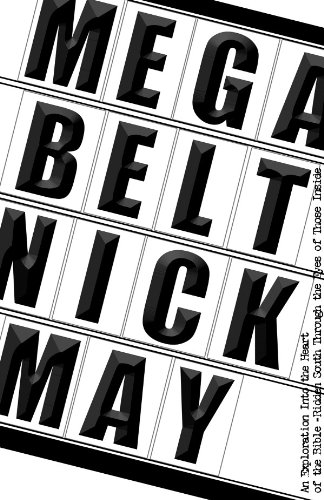
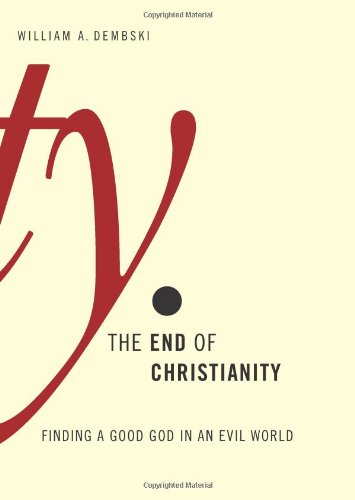

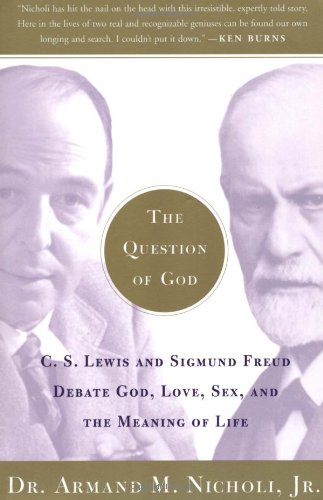
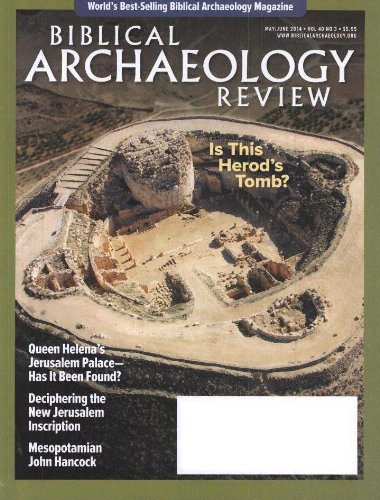

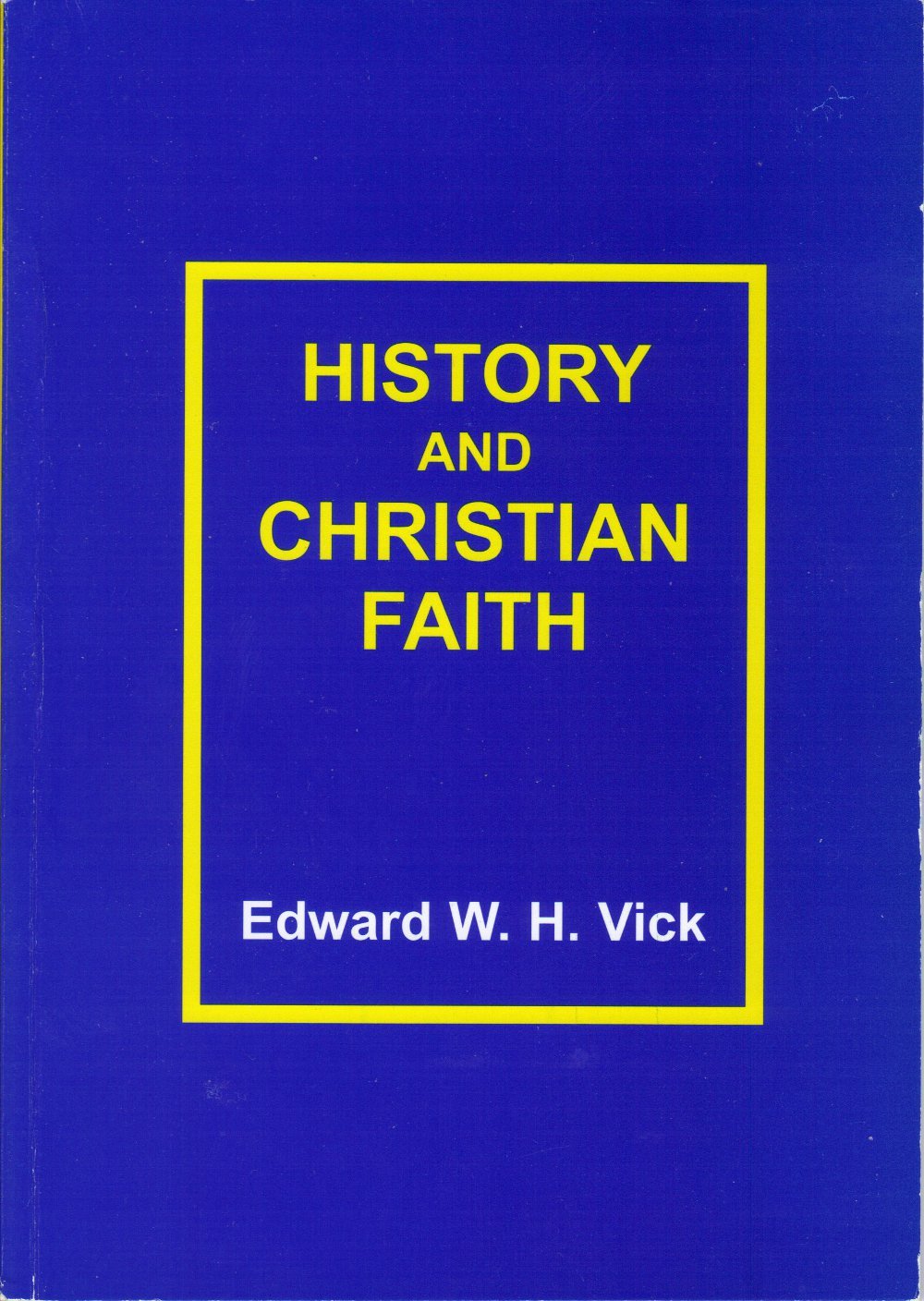
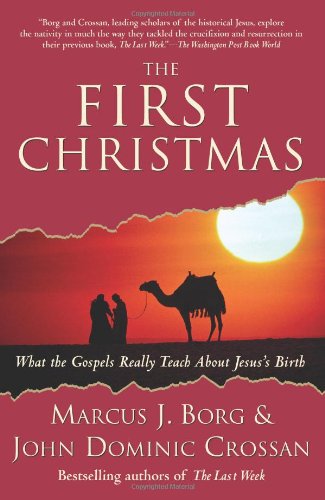
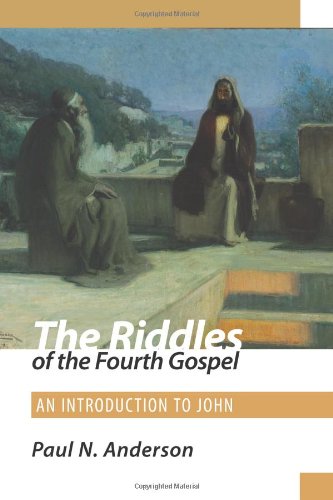
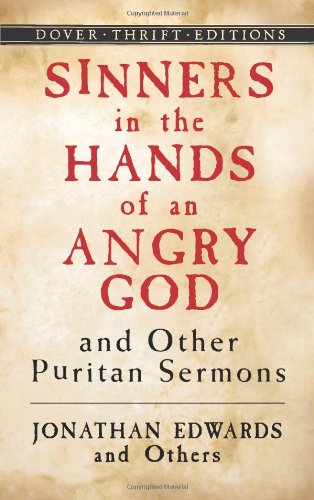
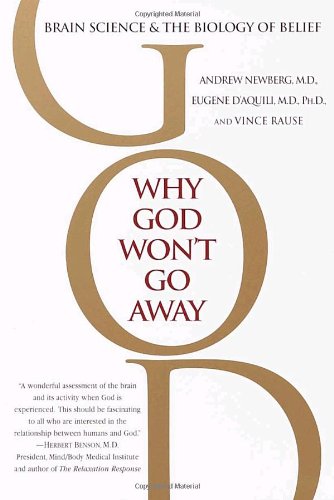
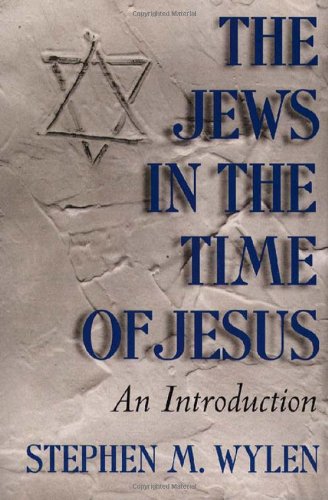
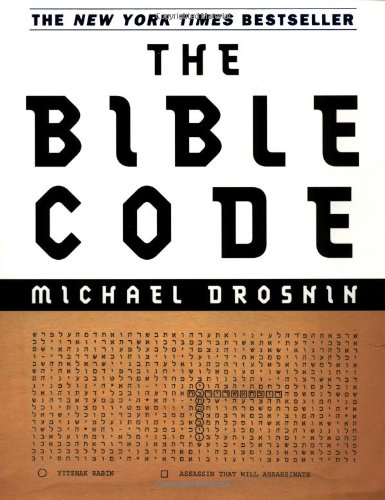
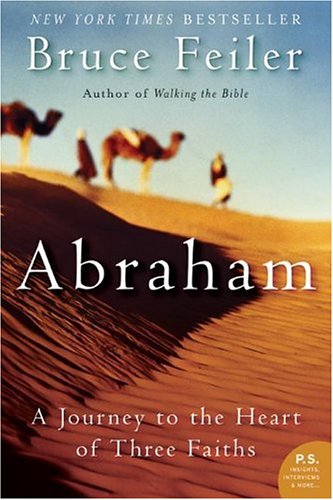

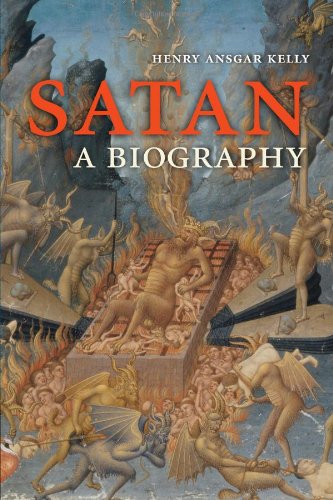
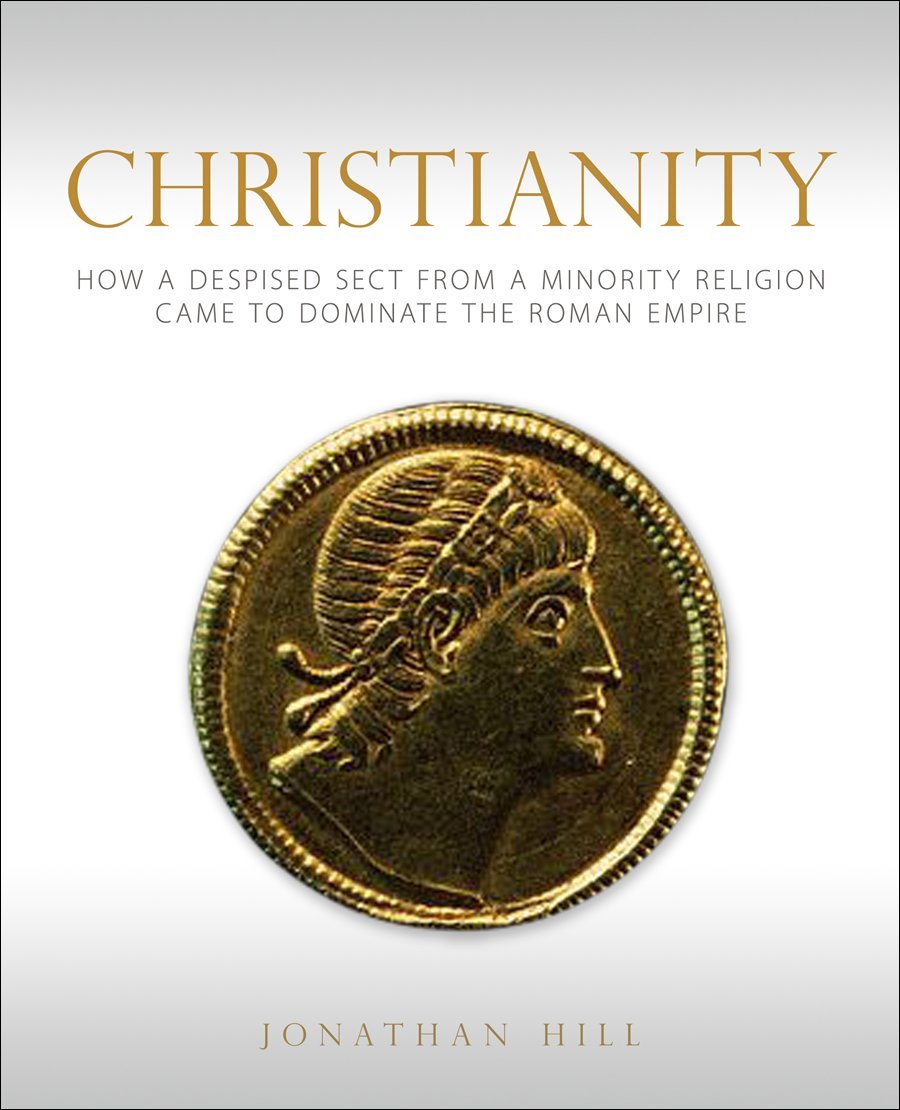
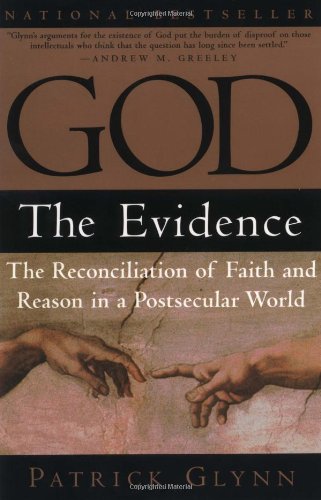

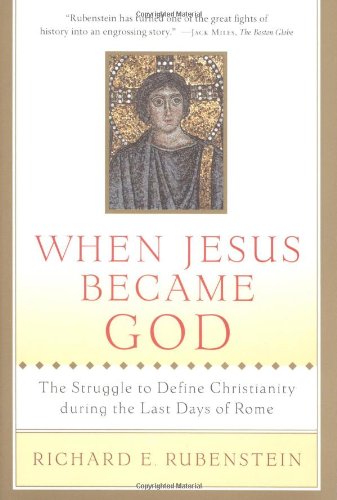
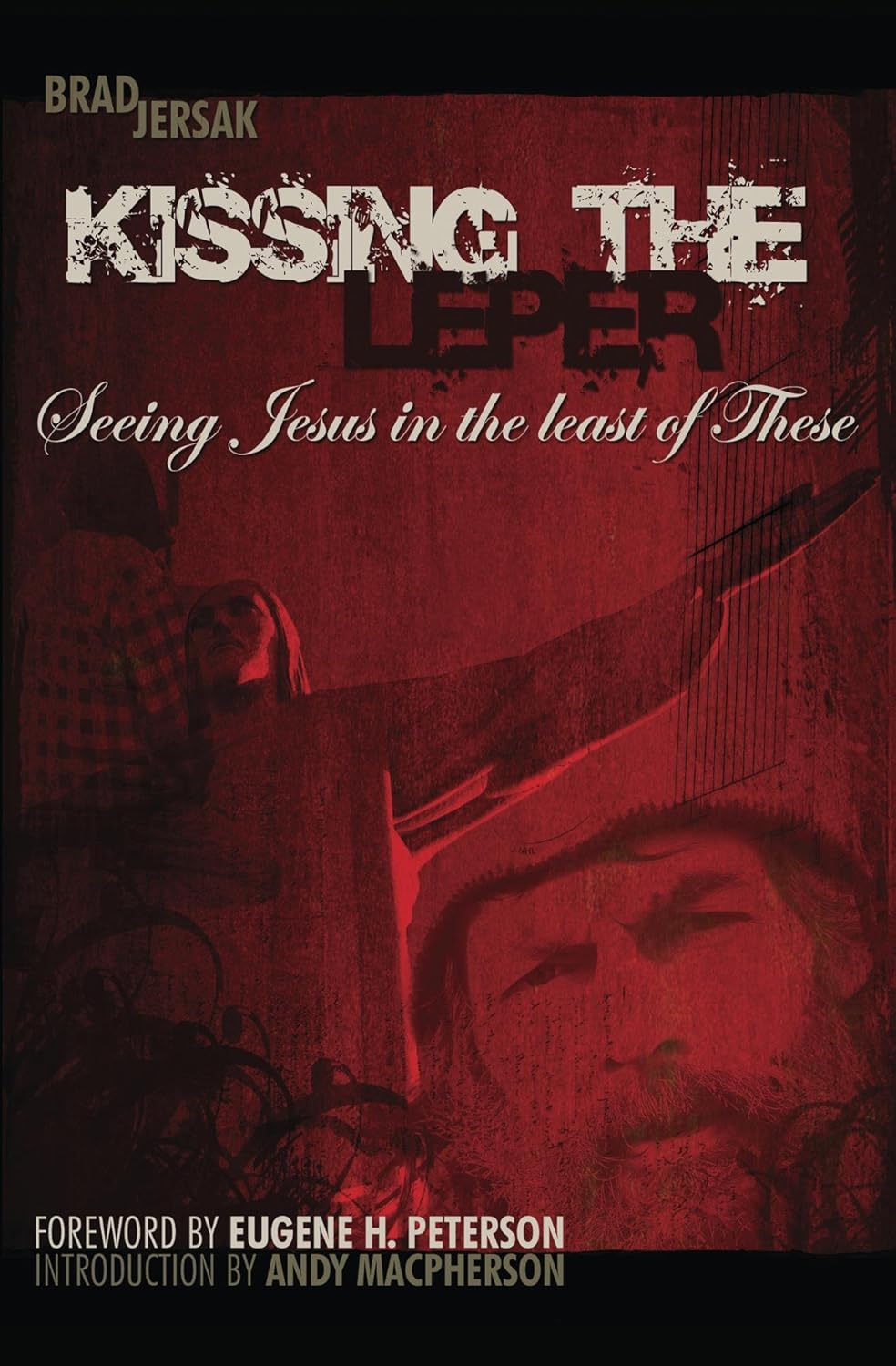









 354 Circles
354 Circles
 603 Goodreads Friends & Fans
603 Goodreads Friends & Fans

 Hello! I'm an author, historical Jesus scholar, book reviewer, and liberal Christian, which means I appreciate and attempt to exercise the humanitarian teachings of Jesus without getting hung up on any particular supernatural or religious beliefs.
The Bible is a magnificent book that has inspired and spiritually fed generations for thousands of years, and each new century seems to bring a deeper understanding of life’s purpose. This is true of not only Christianity; through the years, our age-old religions are slowly transforming from superstitious rituals into humanitarian philosophies. In short, we are growing up, and I am thrilled to be riding the wave.
I avidly read all thought-provoking religion titles. New authors: I'd love to read and review your book!
Hello! I'm an author, historical Jesus scholar, book reviewer, and liberal Christian, which means I appreciate and attempt to exercise the humanitarian teachings of Jesus without getting hung up on any particular supernatural or religious beliefs.
The Bible is a magnificent book that has inspired and spiritually fed generations for thousands of years, and each new century seems to bring a deeper understanding of life’s purpose. This is true of not only Christianity; through the years, our age-old religions are slowly transforming from superstitious rituals into humanitarian philosophies. In short, we are growing up, and I am thrilled to be riding the wave.
I avidly read all thought-provoking religion titles. New authors: I'd love to read and review your book!
 Hi! While Lee writes the articles and reviews the books, I edit, organize, and maintain the blog. The views expressed here are Lee's but I'm his biggest supporter! :-)
Hi! While Lee writes the articles and reviews the books, I edit, organize, and maintain the blog. The views expressed here are Lee's but I'm his biggest supporter! :-)
Connect With Me!